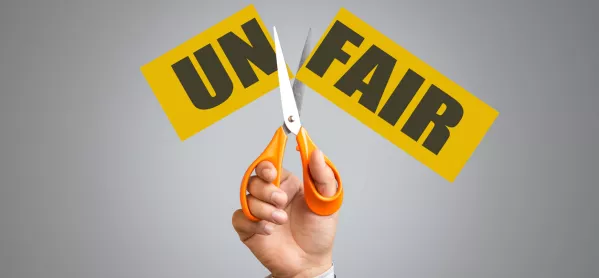- Home
- How to make the exam appeals system fairer
How to make the exam appeals system fairer

So we’ve had the exams and we’ve had the results - but do we trust them? If not, schools can appeal if they feel a student has been awarded a grade that does not reflect their true ability. But is this system really satisfactory? I would argue it is not.
Schools will know by the end of the month the outcome of the appeals process in relation to this year’s exams, and in December, the Scottish Qualifications Authority (SQA) will publish a range of statistics showing how well used it has been nationally, and to what extent schools have been right to query their pupils’ results.
Typically, the piece of information that makes it from these SQA spreadsheets and into the public domain - via the websites of newspapers and magazines like this one - is the number of appeals that private schools make compared with state schools.
Background: Free to appeal results - if you can afford it
The stats: What the 2018 appeal figures showed
Related: Revealed: The cost to schools of exam appeals
Last year, while state schools appealed just 2.4 per cent of exam entries, independent schools appealed 6.8 per cent, broadly similar to 2017 figures. This means that private schools were approximately three times more likely to query their pupils’ exam results than state schools. The reason this is controversial is that back in 2014, the SQA started to charge schools for unsuccessful appeals.
Is the exam appeals system working?
The costs range from £10 to £40 and the fear is that these charges are deterring cash-strapped state schools from appealing on behalf of their pupils. This becomes even more concerning when you realise that, while private schools might be appealing more, they are just as successful as state schools when it comes to getting their pupils’ grades changed for the better. The SQA data last year showed that the percentage of upgrades as a result of requests received was 14.4 per cent for council schools and 14.1 per cent for the independent sector.
So while the temptation might be to assume that many of the appeals made by private schools are spurious and submitted simply because the institutions have the financial wherewithal to do so, the figures do not bear this out. Instead, they suggest that in all likelihood there are state school pupils who are not getting the grade they deserve but who will never be any the wiser.
This introduces a niggle of doubt about the fairness of the examination process that is exacerbated when you look at the success rate of appeals across different subjects
These show that while roughly 14 per cent of marking reviews - the most popular form of appeal involving a senior examiner reviewing a candidate’s “exam materials” - are successful, this varies widely for different subjects.
So a maths marking review is unlikely to be successful; last year, just 3 per cent of Higher maths marking reviews resulted in an upgrade. However, for Higher history there were 444 requests for a marking review and 27 per cent resulted in an upgrade; for Higher geography there were 438 requests and 24 per cent resulted in an upgrade; and, perhaps more surprisingly, of the 457 Higher chemistry marking reviews, 20 per cent resulted in an upgrade.
Research in England by Ofqual found that, in subjects where essay-style questions were more prevalent, there was greater potential for professionals to come to different opinions about answers and allocate different marks. Given the difference between one grade boundary and another is always one mark, the result can of course be different grades - so what to do?
Will the SQA increase transparency?
At present, the SQA will not release marked scripts. The theory is that rather than fixing any issues retrospectively, it should concentrate efforts on making sure that schools and teachers understand the standards. It is also about volume; SQA marks around a million scripts every year and while most of them are now scanned and stored electronically, not all of them are. But, by next year, English exam boards will have to change their systems to provide quick access to all marked scripts. If they so choose, they will be able to charge for this service. However, one exam board, Pearson, has implemented this change already and has done it for free.
Last year, Ofqual - which regulates qualifications, examinations and assessments in England - told MPs that “Pearson found that schools that used this service tended to submit fewer requests for review, but that a higher proportion of those they did submit were successful. This suggests that, when fully implemented, this change should make a significant difference to the operation of the review and appeal system.”
Teachers might worry that such a move would increase their workload - after all, who would be asked to review the marked scripts if they were to become available? Schools would, therefore, have to use any new access responsibly, but this does seem to be something that at the very least deserves careful consideration.
The SQA’s solution to reducing the overwhelming number of appeals it was receiving prior to 2014 was to introduce charging; the Pearson experience suggests that technology might provide a better way to reduce appeals - at the same time as making the system more equitable. If the SQA is really interested in creating a level playing field for pupils, it must take heed.
Keep reading for just £1 per month
You've reached your limit of free articles this month. Subscribe for £1 per month for three months and get:
- Unlimited access to all Tes magazine content
- Exclusive subscriber-only stories
- Award-winning email newsletters



